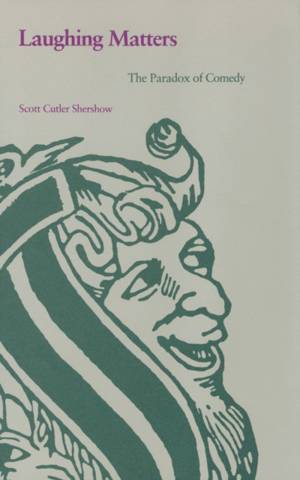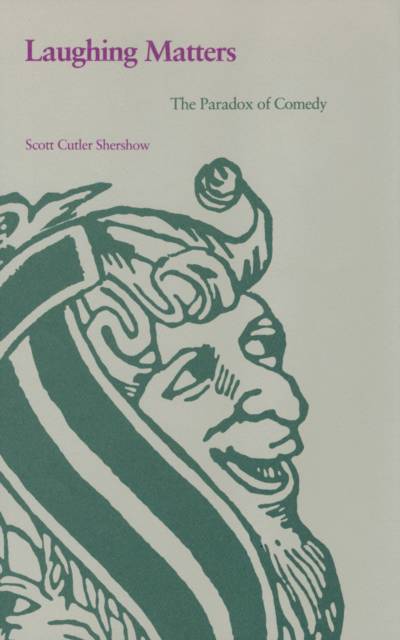
Door een staking bij bpost kan je online bestelling op dit moment iets langer onderweg zijn dan voorzien. Dringend iets nodig? Onze winkels ontvangen jou met open armen!
- Afhalen na 1 uur in een winkel met voorraad
- Gratis thuislevering in België vanaf € 30
- Ruim aanbod met 7 miljoen producten
Door een staking bij bpost kan je online bestelling op dit moment iets langer onderweg zijn dan voorzien. Dringend iets nodig? Onze winkels ontvangen jou met open armen!
- Afhalen na 1 uur in een winkel met voorraad
- Gratis thuislevering in België vanaf € 30
- Ruim aanbod met 7 miljoen producten
Zoeken
Omschrijving
This book explores the paradoxes of theatrical comedy which emerge both in comic theater and in efforts to discern its meaning. Scott Cutler Shershow views comedy not only as the classical "mirror of nature," but also as a tradition of performance whose familiar conventions reflect our own opposing visions of human life: criticism or acceptance of the world, cynicism or optimism, derision or forgiveness. The very act of evaluating comedy also reveals its paradoxical nature, as critics become caught up in what Shershow calls comedy's "constantly shifting perspective." In examining the basic building blocks of comic nature--plot and character--Shershow discovers a pattern of critical contradiction that ironically defines the paradox of comedy itself. He then looks at classical comic plays by Plautus, Machiavelli, and Middleton, focusing on the ironic tensions with the themes of money and lust. Then, seeking a still deeper truth within the nature of performance itself, Shershow analyzes such plays as Euripides' Helen, Beckett's Endgame, Mayakovsky's Mystery Bouffe, and Shaw's Man and Superman. Here he finds a transcendence of irony, as optimism and reconciliation emerge as genuine alternatives to ironic pretense.
Specificaties
Betrokkenen
- Auteur(s):
- Uitgeverij:
Inhoud
- Aantal bladzijden:
- 168
- Taal:
- Engels
Eigenschappen
- Productcode (EAN):
- 9780870235092
- Verschijningsdatum:
- 27/03/1986
- Uitvoering:
- Hardcover
- Formaat:
- Genaaid
- Gewicht:
- 400 g

Alleen bij Standaard Boekhandel
+ 80 punten op je klantenkaart van Standaard Boekhandel
Beoordelingen
We publiceren alleen reviews die voldoen aan de voorwaarden voor reviews. Bekijk onze voorwaarden voor reviews.











